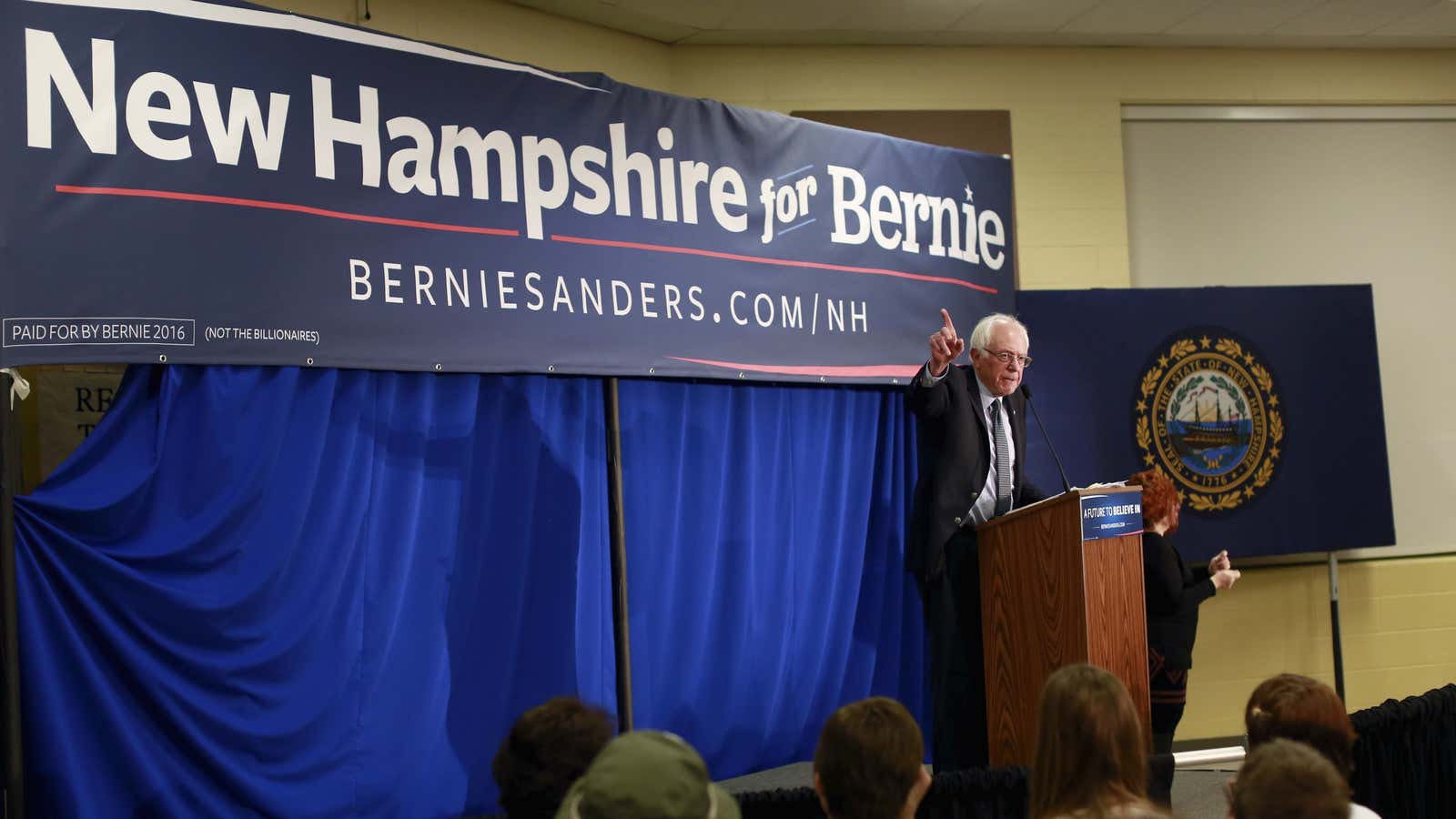Every four years, the two major political parties in the United States select their candidates for president by way of primary elections and caucuses. These are held, state-by-state, starting in February of a given election year, the first two being the Iowa Precinct Caucuses (Feb. 1, 2016) and the New Hampshire Primary (Feb. 9). And that is a rubbish way to go about things.
Being the first states to cast ballots for party nominees comes with an awful lot of undue power and influence. Iowa and New Hampshire essentially set the tone for the rest of the primary season, and have often predicted the eventual nominees (though not in recent history, especially in Iowa). One town in New Hampshire, Dixville Notch, casts votes at midnight, preceding any other locality in the state. The results are broadcast throughout following day as the rest of New Hampshire heads to the polls—a measure that may sway undecided voters and, in many ways, reflects how Iowa and New Hampshire establish trends for the remaining 48 votes.
A win in either state gives presidential candidates an air of inevitability to which some voters respond. John Kerry won Iowa in 2004, for example, and proceeded to supplant the early Democratic favorite, Howard Dean. And in 2008, Barack Obama surpassed party-favorite Hillary Clinton for the Democratic nomination. Some political analysts demarcate his stunning victory in Iowa as the beginning of an historic upset.
The extent to which primary votes in Iowa and New Hampshire actually alter public opinion is not fully known. Some say they’re indicative of national moods. Other say they’re only as influential as the media permit them to be. Generally, primary voters come from the extremes of the parties: leftist Democrats and right-wing Republicans. Regardless, candidates spend an absurd amount of time handshaking and baby-kissing in Manchester and the Quad Cities. As a matter of principle, the fact that so much special attention is heaped on voters in these two states is rather problematic–if not outright un-democratic.
It might be different if say, Texas and New York held the first-in-the-nation primaries. These two states—one solidly conservative, the other generally liberal—are large, both in geographic area and population. They are diverse in ethnic makeup, industrial focus, and land usage. They are home to some very, very rich people, and some very, very poor ones. Most important of all, they contain both rural and densely urban communities, and the vastly disparate political inclinations such environments foster.
By contrast, Iowa and New Hampshire are very white. Their disparities in income and education are not reflective of the national norms. The largest cities are overgrown small towns. Simply put, they do not reflect the broader electorate. If not for their position on the calendar, they wouldn’t be the states dictating presidential nominees to the rest of the country. (In the case of Iowa, the caucus date is the result of a hotel scheduling snafu in 1972.)
But instead of substituting New Hampshire and Iowa with a Texas and New York (or a Georgia and Minnesota, or a Florida and Michigan), let’s consider the obvious alternative: a national primary, conducted on a single day. It’s a very simple proposal. Registered party members in a given state would pick the candidate they like best. The candidate with the most support would win that state’s primary and take home the concomitant number of Electoral College votes, à la the general election. The person who acquires a majority of electoral votes goes onto the general election as the nominee. End of story.
Not only would this eliminate the undue influence given to voters in New Hampshire and Iowa, it would shorten the primaries season by months. Politicians wouldn’t be able to foment their bases with untenable proposals, only to do a tap dance back to the center in time for the general election. Candidates also wouldn’t have time to visit every county in two states. That would mean they’d have to tailor their message to the areas where the broad swaths of their likely supporters actually live–whether in the suburbs and exurbs, or in America’s major cities. They’d essentially have to be far more honest about who they are with the American people, far earlier in the process. That might be bad for the talking heads on cable news. But it’d be good news for democracy.




